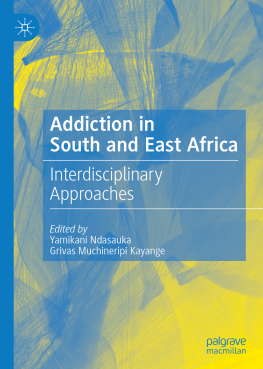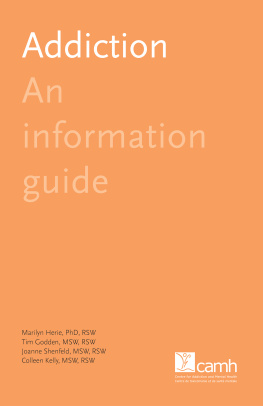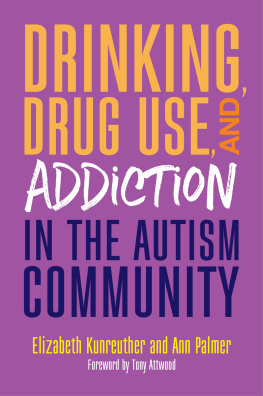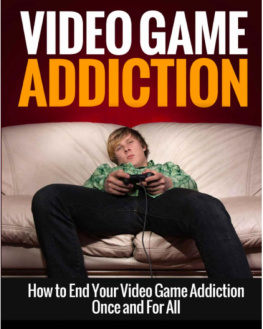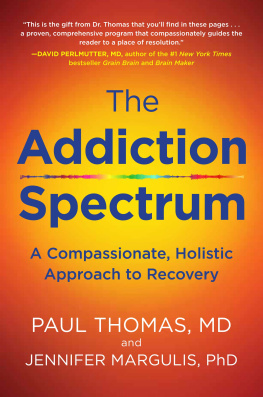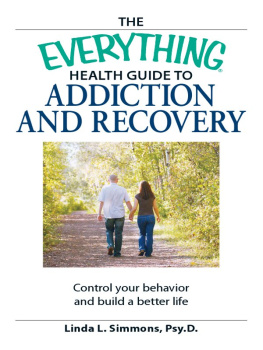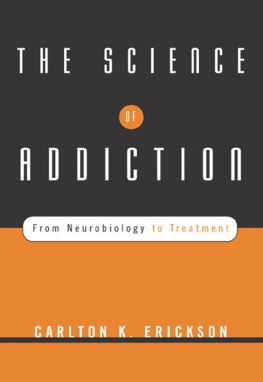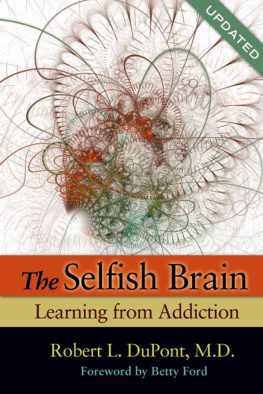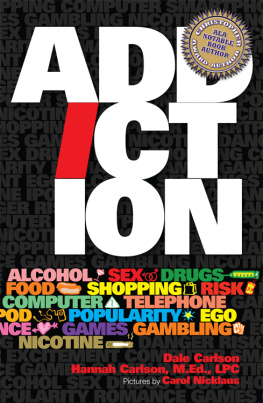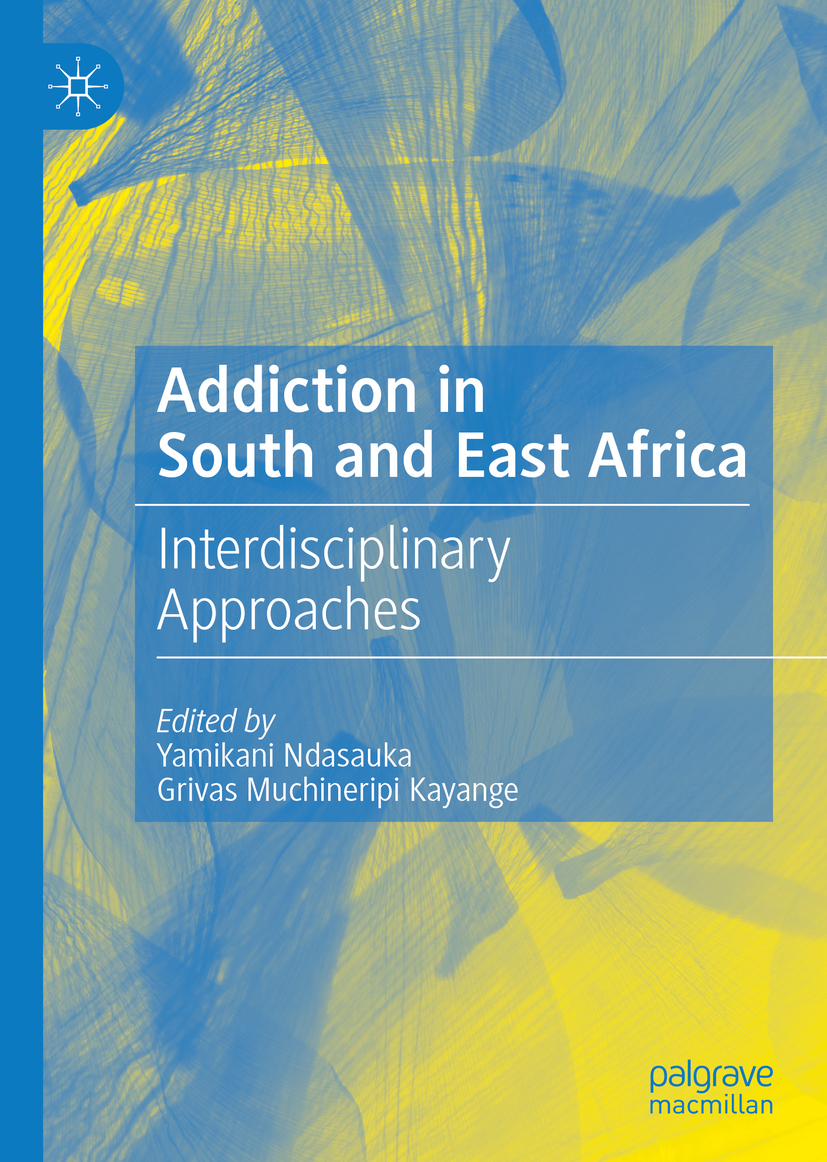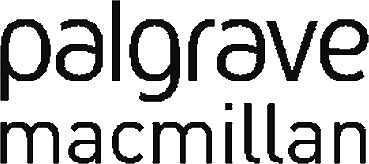Editors
Yamikani Ndasauka and Grivas Muchineripi Kayange
Addiction in South and East Africa Interdisciplinary Approaches
Editors
Yamikani Ndasauka
Chancellor College, University of Malawi, Zomba, Malawi
Grivas Muchineripi Kayange
Chancellor College, University of Malawi, Zomba, Malawi
ISBN 978-3-030-13592-8 e-ISBN 978-3-030-13593-5
https://doi.org/10.1007/978-3-030-13593-5
The Editor(s) (if applicable) and The Author(s), under exclusive license to Springer Nature Switzerland AG, part of Springer Nature 2019
This work is subject to copyright. All rights are solely and exclusively licensed by the Publisher, whether the whole or part of the material is concerned, specifically the rights of translation, reprinting, reuse of illustrations, recitation, broadcasting, reproduction on microfilms or in any other physical way, and transmission or information storage and retrieval, electronic adaptation, computer software, or by similar or dissimilar methodology now known or hereafter developed.
The use of general descriptive names, registered names, trademarks, service marks, etc. in this publication does not imply, even in the absence of a specific statement, that such names are exempt from the relevant protective laws and regulations and therefore free for general use.
The publisher, the authors and the editors are safe to assume that the advice and information in this book are believed to be true and accurate at the date of publication. Neither the publisher nor the authors or the editors give a warranty, express or implied, with respect to the material contained herein or for any errors or omissions that may have been made. The publisher remains neutral with regard to jurisdictional claims in published maps and institutional affiliations.
Cover illustration: Marina Lohrbach_shutterstock.com
This Palgrave Macmillan imprint is published by the registered company Springer Nature Switzerland AG
The registered company address is: Gewerbestrasse 11, 6330 Cham, Switzerland
Preface
This work is an interdisciplinary volume that investigates addiction in Africa, particularly in South and East Africa. The contributors of this volume are experts in different fields including psychology, chemistry, biology, African philosophy, ethics, literature, anthropology and cultural studies. The chapters are mainly dependent on original research given that there is not much that has been written on the subject of addiction in Africa. The book has therefore responded to the gap of knowledge on addiction in Africa.
Apart from the provision of knowledge, the book has discussed and attempted to provide solutions to specific issues regarding drug abuse and addiction, alcohol abuse and addiction, and sex addiction. Drug and alcohol abuse have been on the rise in Africa and have proved to be hazardous for the African continent. Among the different causes of deaths in Africa, abuse and addiction have led to premature deaths, mainly among the youths. Similarly, sex addiction has negatively affected development in Africa, due to its role in increasing sexually transmitted diseases, such as HIV/AIDS and related diseases.
The information in this edited volume is suitable for a broad category of readers, including both academics and non-academics. The book will be a good source of reference for different university students (undergraduate and post-graduate) across disciplines, researchers in various fields (in research centres), organisations working with the youth (such as World Health Organisation and UNESCO), psychologists, philosophers, linguists, cultural critiques, public health practitioners and legal practitioners.
It is with great pleasure that we consider this work as providing a genuine background for any further research on addiction in the south, east and other parts of Africa. It is further opening a possible dialogue with the studies of addiction that were and are currently being done in different parts of the world.
Yamikani Ndasauka
Grivas Muchineripi Kayange
Zomba, Malawi
Acknowledgements
We thank all contributors for making this work possible. We also thank Professor Richard Tambulasi, the principal of Chancellor College, and Dr. Japhet Bakuwa, the dean of Faculty of Humanities, for allowing us some days off to put together the chapters of the book. Finally, a huge thanks should go to members of Philosophy Department at Chancellor College for encouraging us as we undertook this project.
Contents
Yamikani Ndasauka and Grivas Muchineripi Kayange
Part IConceptualization of Addiction
Thaddeus Metz
Grivas Muchineripi Kayange
Wilfred Lajul
Chikumbutso Herbert Manthalu
Part IIAddiction in Literature and Popular Culture
Telamisile Phumlile Mkhatshwa and Gloria Baby Malambe
Beaton Galafa
Dave Mankhokwe Namusanya
Hambaba Jimaima and Gabriel Simungala
Anthony Mavuto Gunde
Part IIINeurobiology and Neurochemistry of Addiction
Andrew G. Mtewa , Serawit Deyno , Emmanuel L. Peter , Annu Amanjot , Lucrce Y. Ahovegbe and Duncan C. Sesaazi
Godfrey S. Bbosa
Part IVSubstance and Non-substance Addiction
Edith B. Milanzi and Yamikani Ndasauka
Tafadzwa Rugoho
Tatenda Nhapi
Tiwonge D. Manda , Edister S. Jamu , Elias P. Mwakilama and Limbika Maliwichi-Senganimalunje
Smith Ouma and Jane Wathuta
Yamikani Ndasauka and Grivas Muchineripi Kayange
List of Figures
Fig. 13.1 Selected demographic characteristics of the study population by country
Fig. 13.2 Overall alcohol prevalence by country
Fig. 13.3 Overall alcohol prevalence by country, separately by men and women
Fig. 13.4 Prevalence of addiction by country
Fig. 16.1 Distribution of IAT total scores
Fig. 16.2 Proportions of reported IAT score ranges for study participants
Fig. 16.3 Description of IAT scores by level of study
Fig. 16.4 Proportions of IAT scores by age group
Fig. 16.5 Distribution of IAT score ranges by year of study in college
Fig. 16.6 Description of probable common mental disorder students
Fig. 16.7 Scatter plot of IAT and SRQ total performances
Fig. 16.8 Distribution of existence or non-existence of common mental disorder within each IAT category
List of Tables
Table 3.1 Cannabis value in African culture
Table 3.2 Cannabis seizures in Africa
Table 9.1 Semiotic nature of the codes
Table 9.2 WhatsApp and Facebook abbreviations
Table 9.3 WhatsApp and Facebook abbreviations and language
Table 12.1 Main classes of drugs of abuse, their main molecular targets, and some of the mechanism(s) by which they increase DA in NAc
Table 13.1 Average number of days spent drinking alcohol within a specified period
Table 16.1 Socio-demographic characteristics of study participants by gender
Table 16.2 Description of IAT total score ranges

